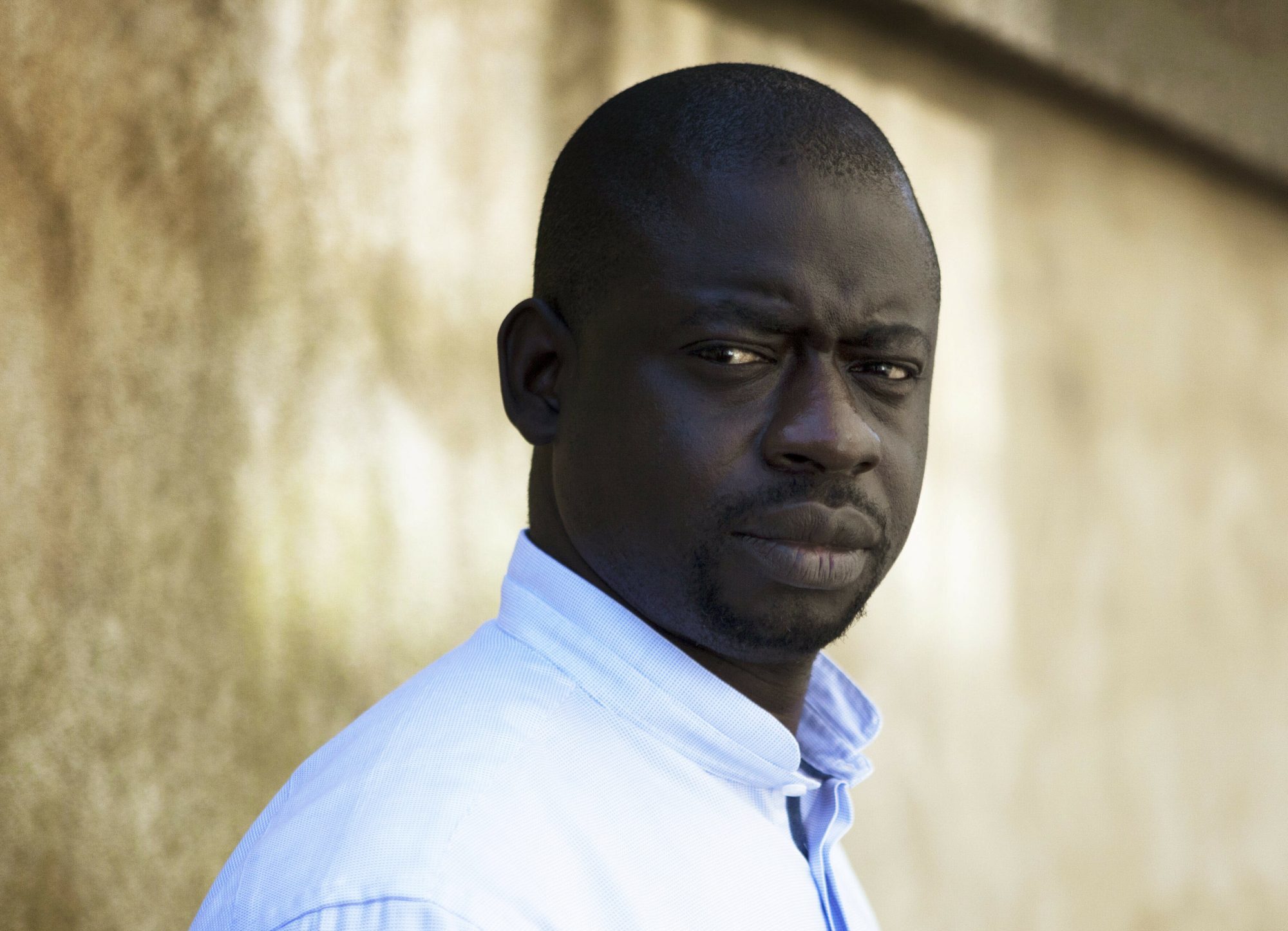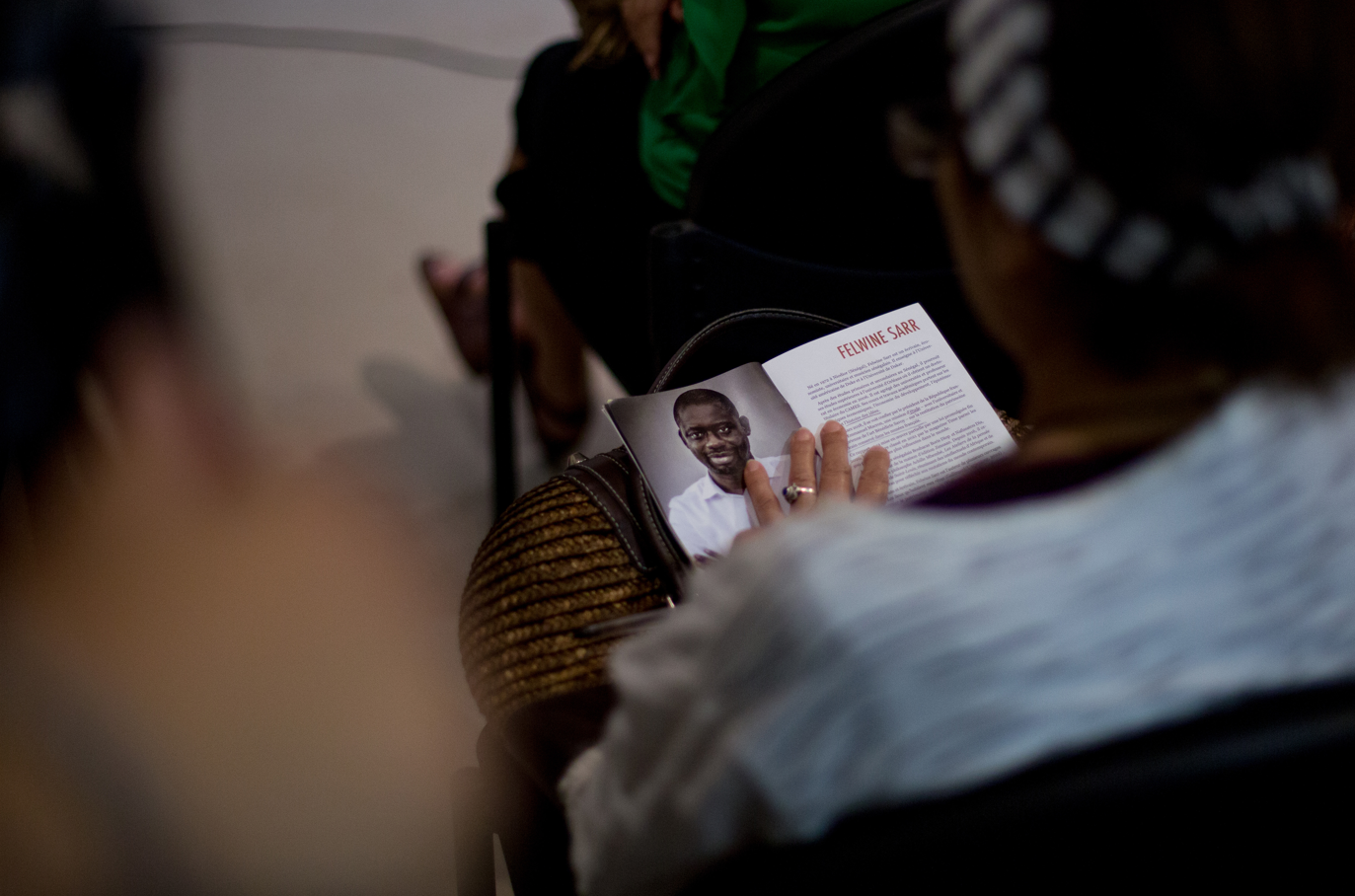Senegalese philosopher, economist, and musician Felwine Sarr is invited by Villa Albertine to participate in an outstanding conversation series at the Carlos Museum at Emory University, delving into his intellectual and political journey, and at Georgia Tech, highlighting his literary and musical practice.
The Carlos Museum at Emory University
Decolonizing Knowledge, a Conversation with Felwine Sarr
Thursday, November 21 | 4-5:30pm
The Michael C. Carlos Museum, 571 South Kilgo Cir NE, Atlanta, GA 30322
One of the great intellectuals of our time, committed to the decolonization of knowledge from an African perspective, Senegalese thinker Felwine Sarr is invited for the first time in Atlanta to present his work and his intellectual journey. Felwine Sarr will be in conversation with Lauren Tate Baeza, Curator of African Art at the High Museum of Art and Axelle Karera, Assistant Professor in the Department of Philosophy at Emory University.
In 2021, Time magazine featured Felwine Sarr as one of the 100 most influential people in the world. His thinking is developing in different directions and on several fronts at once. With philosopher Achille Mbembe, he is the initiator of the “Ateliers de la pensée”, which has been bringing together writers, thinkers, artists and academics from Africa and the diaspora in Dakar since 2016. The same year, he published Afrotopia [University of Minnesota Press, 2020], an essay on the future of the continent and the need to pursue decolonization. Together with art historian Bénédicte Savoy, he is also the author of the landmark “Rapport sur la restitution du patrimoine culturel africain” [The Restitution of African Cultural Heritage. Toward a New Relational Ethics, 2018], logical compensation for colonial predation. Felwine Sarr now teaches at Duke University, where he brings knowledge produced in Africa and promotes an ecology of knowledge from different geographies and traditions. More recently, he has played a major role, alongside numerous intellectuals, activists and citizens, in the defense of Senegalese democracy, and advocates a deepening of democracy in Africa. Today, he is working to create a “pluriversity” in Dakar, a university based on the plurality of knowledge.
Register now
This event is presented by the Michael C. Carlos Museum at Emory University, Villa Albertine, the French Institute for Culture and Education, and France-Atlanta.
Georgia Tech
Spaces of the Soul: Felwine Sarr on Literature, Music, and Dreams in Conversation with Stéphanie Boulard
Friday, November 22 | 4:30-6:30pm
Scholars Event Theater (Room 1280), Price Gilbert Memorial Library at Georgia Tech, 704 Cherry St NW, Atlanta, GA 30332
In this conference, we will learn more about Felwine Sarr’s creative practices, examining how artistic forms —such as musical composition, poetry, and narrative fiction— shape and express our emotional and intellectual landscapes. He will be in conversation with Stéphanie Boulard, Professor of French Literature and Visual Arts at Georgia Tech.
Register now
This event is presented by the School of Modern Languages at Georgia Tech, Villa Albertine, the French Institute for Culture and Education, and France-Atlanta, with the support of the Atlanta Global Studies Center (AGSC) and the Office of the Vice Provost of International Initiatives.

Felwine Sarr
Senegalese author, philosopher, economist, musician, and Professor at Duke University
See more
Felwine Sarr is a Senegalese academic and writer. He is Anne-Marie Bryan Distinguished Professor of Romance Studies at Duke University in North Carolina, after teaching at the Université Gaston Berger in Saint-Louis, Senegal, where he is Professeur Titulaire des Universités and agrégé in economics. His academic work focuses on economics, the ecology of knowledge, contemporary African philosophy, economic policy, epistemology, economic anthropology, and the history of religious ideas.
He has published Dahij (Gallimard 2009), 105 Rue Carnot (Mémoire d’Encrier 2011), Méditations Africaines (Mémoire d’Encrier 2012), Afrotopia (Philippe Rey, 2016), Ishindenshin (Mémoire d’Encrier, 2017), Habiter le Monde (Mémoire d’Encrier, 2017), Ecrire l’Afrique-monde (collective work co-edited with Achille Mbembe, Philippe Rey/Jimsaan, 2017), Restituer le patrimoine Africain (Philippe Rey/Seuil, 2018) with Bénédicte Savoy, Politique des Temps (co-edited with Achille Mbembe, Philippe Rey/Jimsaan 2019), La Saveur des derniers mètres (Philippe Rey, 2021), Traces (Actes Sud, 2021, translation into Wolof Watit, 2023, éditions EJO), l’Économie à venir (Les liens qui Libèrent, 2021) with Gaël Giraud, Les Lieux qu’habitent mes Rêves (Gallimard, 2022) and Le Bouddhisme est né á Colobane (Philippe Rey /Jimsaan, 2024).
Lauren Tate Baeza
Curator of African Art at the High Museum of Art
See more
Lauren Tate Baeza is a scholar of African art and political history. She is Curator of African Art at the High Museum of Art, where she spearheads an initiative focused on African modernism and 20th century art. For the museum, she has curated Bruce Onobrakpeya: The Mask and the Cross, Three Decades of Democracy: South African Works on Paper, and the forthcoming Ezrom Legae: Beasts. Baeza previously served as Director of Exhibitions at the National Center for Civil and Human Rights, where she curated presentations from the Morehouse College Martin Luther King Jr. Collection and organized numerous exhibits and programs engaging the visual and performing arts to address social issues. Baeza is a contributing editor at Art Papers and serves on the boards of the Still Artist Residency in Johannesburg and UCLA African Studies Center.
Axelle Karera
Assistant Professor in the Department of Philosophy at Emory University
See more
Axelle Karera is an Assistant Professor in the Department of Philosophy at Emory University. She works at the intersection of 20th century continental philosophy, the critical philosophy of race (particularly Black critical theory), contemporary critical theory, and the environmental humanities. In addition to forthcoming work on Blackness and ontology, she is currently completing her first monograph titled The Climate of Race: Blackness and the Pitfalls of Anthropocene Ethics, in which she examines the question of relationality in new materialist ontology and speculative realism’s purported return to metaphysics. More importantly, the book’s investigations attempts the discern the ethical crux of critical thought in the age of the Anthropocene, with the aim to attend to its powerful – and perhaps even necessary – disavowals on matters pertaining to racial ecocide.
Stéphanie Boulard
Professor of French Literature and Visual Arts at Georgia Tech
See more
Stéphanie Boulard is Associate Professor of French and Francophone Literature and Cinema in the School of Modern Languages at Georgia Tech. She specializes in 19th to 21st-century French literature with a particular emphasis on the novel and visual arts, including the relations between word and image, aesthetic and political dimensions in literary and artistic thinking and the notion of transgression in literature and the arts. Author Rouge Hugo (2014), and co-author of Hugographies (2022), Dr. Boulard has published extensively on topics such as the French Revolution, violence and death penalty; myths and monstrosity; the dream; animal worlds; and migration and exile in literature and the arts. She is also Co-Director of the Global Media Film Festival, a foreign film festival focused on issues of sustainable development, global ecology and social needs across cultures.




